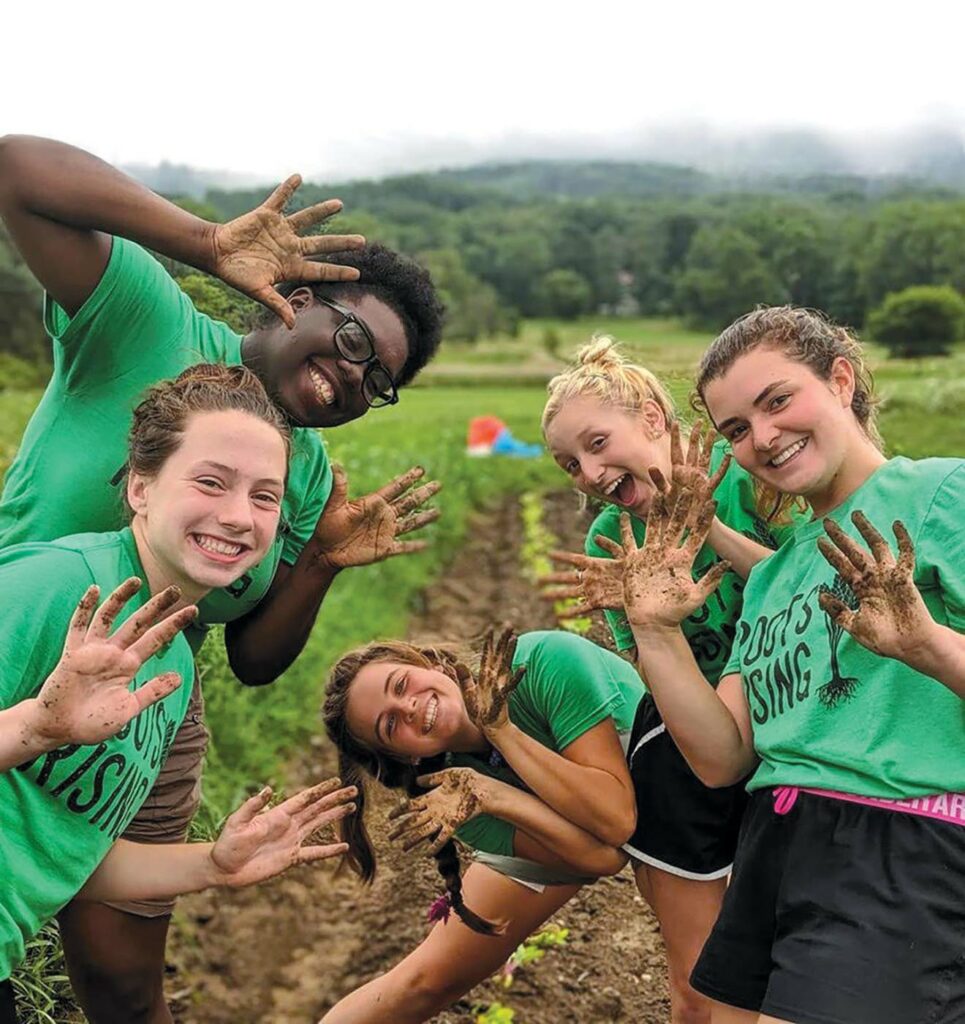
Roots Rising, the local nonprofit that hires teens to run the Pittsfield Farmers Market, has been around for 13 years but has never had its own farm. That’s about to change. Last year, the organization was finally able to purchase a 6.5-acre property on Barker Road in Pittsfield and is now in the midst of turning a long-held dream into reality. That dream, says Roots Rising executive director Jess Vecchia, evolved because the organization had its finger on the pulse of community needs.
Vecchia cofounded Roots Rising in 2013 with the mission to empower youth and build community through food and farming. The first manifestation of that mission was the Pittsfield Farmers Market, staffed and managed by local teens. “We realized that teens were really excited by community work, but we had really limited hours that we could offer with the farmers market being just one day a week,” says Vecchia. So, in 2017, Roots Rising launched Youth Crews—a program that sends teams of teens to help on local farms such as Red Shirt, Holiday Brook, Abode, and Hancock Shaker Village. That program, free to farmers, was a huge success: It benefited teens who loved farming and needed paid work; and it gave local farms, many of which practice labor-intensive hand-scale farming, a reliable source of labor.
During the pandemic, says Roots Rising farm director Lauren Piotrowski, “it became apparent that we needed to grow more food locally.” The organization also heard from its Youth Crew members that they wanted to experience the entire farming cycle, from spring planting to fall harvest and everything in between. So, a Roots Rising farm seemed like the next natural step. With support from local funders and a loan from Greylock Federal Credit Union, the property on Barker Road was purchased last February.
“This last year has been a year of really thoughtful planning,” says Piotrowski. “We really wanted to make sure our choices were aligned with the continued thriving of the land, the native species, the flora and fauna. Our farm will have a flexible operating model based on the needs of the community, which we know are always changing.”
For instance, Piotrowski notes that there’s a significant need for more produce available in the winter. “Whether that means growing throughout the winter or growing crops that are suitable for storage, that’s going to be a main focus for us,” she says. “And we don’t want to be in direct competition with our partner farms; we want to augment.” She and Vecchia stress that while their Youth Crews will be fully engaged at the farm, they will also continue their work with other local farmers. When the farm is in full production, they envision 2.5 acres of annual vegetables, an orchard, and high tunnels for winter growing.
While fall and winter growing is possible this year, right now the focus is on clearing invasive species, developing a habitat restoration plan, preparing the land for cultivation, and breaking ground on two new buildings: One will accommodate the farm’s equipment; and the other will be the farm “hub” and will house an education center, a wash and pack station, a cold storage facility, and a commercial kitchen. An existing building that dates to the 1800s will accommodate Root Rising’s offices.
“How things have evolved is so much bigger and more beautiful than I would have imagined a few years ago when we first started looking for land,” says Vecchia. “It’s really exciting to see how it’s all come together.”







